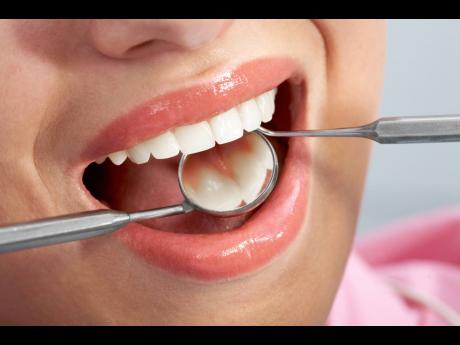Editorial | Oral health – more than the smile
The Ministry of Health and Wellness plans to spend $60 million to replace dentures for nearly 10,000 Jamaicans in what it has dubbed a “second-chance smile” programme.
Health Minister Dr Christopher Tufton announced this week that the programme will be rolled out over an 18-month period and will see new dentures being fitted to persons under 60 years at 82 dental centres across the island.
This intervention by the health ministry recognises the welfare responsibility of the State to help the most vulnerable improve their overall health and well-being. The ministry’s initiative comes in the wake of new efforts by the global health community to come to grips with the fact that oral disease and conditions have grown into an urgent public health challenge, with major economic and social impact on populations.
A Global Oral Health Status Report, published by the World Health Organization (WHO) in November 2022, provided a comprehensive picture of the oral disease burden suggested by data profiles on 194 countries. The report revealed that almost half of the world’s population suffers from oral disease, with three out of every four affected persons living in low- income and middle-income countries. WHO warned that oral diseases are on the rise, principally because people do not have access to treatment methods.
Jamaica’s oral-disease burden per 2019 figures showed the prevalence of untreated caries of deciduous teeth in children between one and nine years old was 45 per cent, while, for permanent teeth in age five and above, it was 30.1 per cent, and prevalence of severe periodontal disease in people 15 and older was 22.7 per cent.
This report highlights the inequities in access because oral healthcare is expensive. People who have no access to insurance will find it difficult to meet dental bills, including regular check-ups. Tooth decay is the most common oral disease. Unfortunately, people tend to brush aside that cavity, as long as there is no severe pain.
However, dental neglect may eventually result in loss of teeth. An alarming number of Jamaicans can be observed walking around with gaps in their mouths where teeth ought to be. Such a state of being can negatively affect one’s confidence, employment chances and social acceptance. It’s not just the smile which may be affected by poor oral health, research has confirmed the linkages between heart disease, cancer and diabetes.
Ultimately, the success of the Ministry of Health’s intervention has to be measured against future actions of people in the community. Do they take seriously health warnings which discourage consumption of sweet and acidic drinks and foods? Do they brush their teeth after every meal? Do they avoid smoking and alcohol consumption? In the final analysis, maintaining healthy teeth and gums requires a lifetime commitment to specific habits. This begins in the home and ought to be extended to schools and the workplace.
The ministry and its allied agencies and partners must continue to push strategies to change perceptions about oral health and encourage people to take charge of their own oral health. Dental experts say dental decay and gum disease are largely preventable.
Replacing dentures will satisfy one segment of the population, but raising awareness to such levels where dentures will not become necessary must be the ideal achievement of the ministry.
We submit this may call for a comprehensive action plan which will create environments that promote oral health with lifestyle changes.
Strengthening, equipping and properly compensating the public oral health workforce are essential planks in any overall plan to boost oral health.

